Everyone loves potatoes. This veggie is so versatile. We eat it in many different ways – chips, french fries, baked or boiled potatoes, in cooked meals with other foods, this list can go on forever. Now, you may be wondering whether guinea pigs can also eat potatoes.
Can guinea pigs eat potatoes? Guinea pigs cannot eat potatoes. This veggie could contain certain ingredients that are toxic for the little cavy. They are allowed to eat the sweet potato and yam, but only moderately, however, they cannot eat the regular yellow potato.
Sadly, the guinea pigs cannot enjoy eating the potatoes as we do. In the following sections, we will discuss everything related to potatoes as food for the guinea pigs.
Table of Content
Are Potatoes Good for Guinea Pigs? | Health Benefits
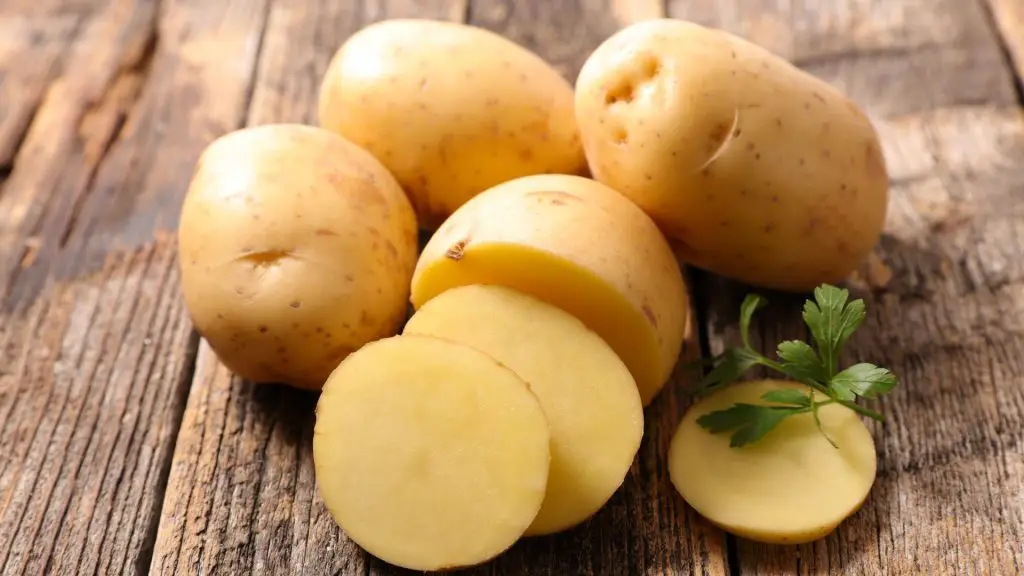
One of the best benefits a potato is vitamin C, among other things. However, sadly, guinea pigs cannot eat the potato. Consuming potato just for a few benefits is not worth causing other health problems afterward for the guinea pig.
Nutrition Facts of Potatoes
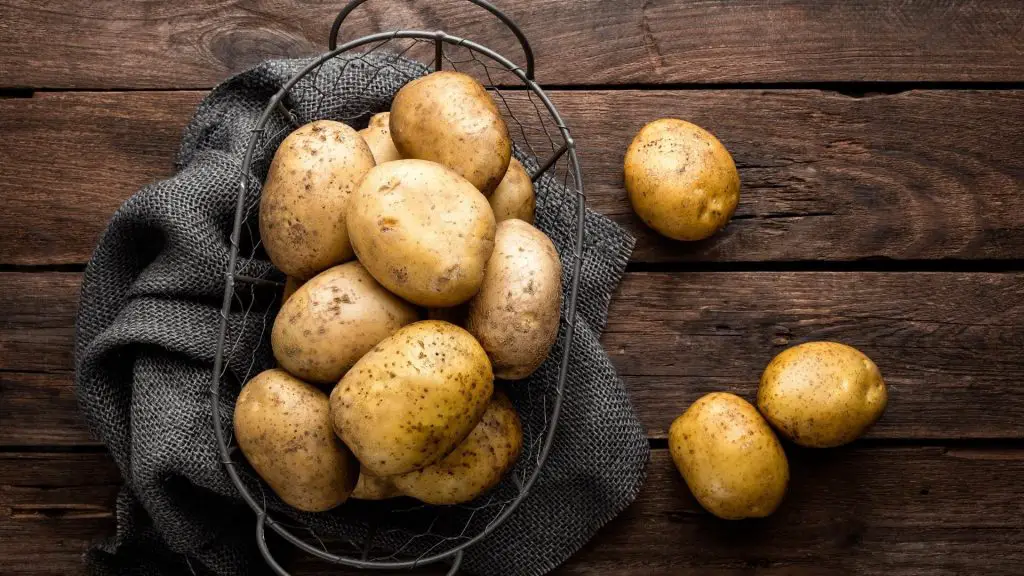
For 100 g (3 oz) potato:
- Moderate in calories – 77 calories. This amount is not too high or too low. But, if eaten in excess, it can cause weight gain because the potato is rich in carbs as well, not just calories.
- Carbs and proteins – 18.4 g of carbs and 2 g of protein. The carbs are needed for quick energy release. On the other hand, proteins are needed for slower energy release throughout the day. Both of them are the main energy sources we need on a daily basis.
- Fiber – 2.2 g. Fibers are needed for good digestion and regular bowel emptying. Lack of fibers leads to constipation and too much fibers can cause diarrhea or loose stool.
- Starches – 15.4 g. The starches can show some benefits like lowering blood sugar, or improved insulin sensitivity, as well as better digestion. But, the potato is very rich in starches and this could show a counter effect – raised blood sugar and bad digestion.
- Sugar – 0.8 g. Potato might not be too rich in sugars. However, if it combined together with the calories and carbs, it could be a fattening food in the long run.
- Low in fat – 0.1 g. A low amount of fat is good for the blood vessels.
- Vitamin C – 33%. Potato has quite a good amount of vitamin C. This vitamin is crucial for guinea pigs, to prevent the scurvy disease. But sadly, they cannot receive this through the potato.
- Thiamin – 5%. Also known as vitamin B1, it keeps the nerves, heart, intestines and stomach healthy. It also helps with the electrolyte flow through muscles and nerves.
- Niacin – 5%. Also known as vitamin B3, this vitamin can lower cholesterol and reduce arthritis pains.
- Vitamin B6 – 15%. This vitamin can help prevent anemia. It also reduces stress, helps in producing the happiness hormone, serotonin, and also helps with better sleep.
- Pantothenic acid – 3%. This is the B5 vitamin. It helps with the creation of blood cells and also converts the foods into energy.
- Calcium – 12 mg. This mineral creates strong bone tissues. But once the guinea pig is an adult, it doesn’t need much of this mineral.
- Potassium – 12%. This nutrient is essential for electrolyte and water balance in the body, for lowering blood pressure and keeping the heart healthy too. The deficit of potassium leads to weakness and constipation.
- Copper – 5%. The copper helps in red blood cells formation. It works together with iron and it helps with anemia prevention, as well as iron absorbing.
Are Potatoes Poisonous to Guinea Pigs? | Possible Risks
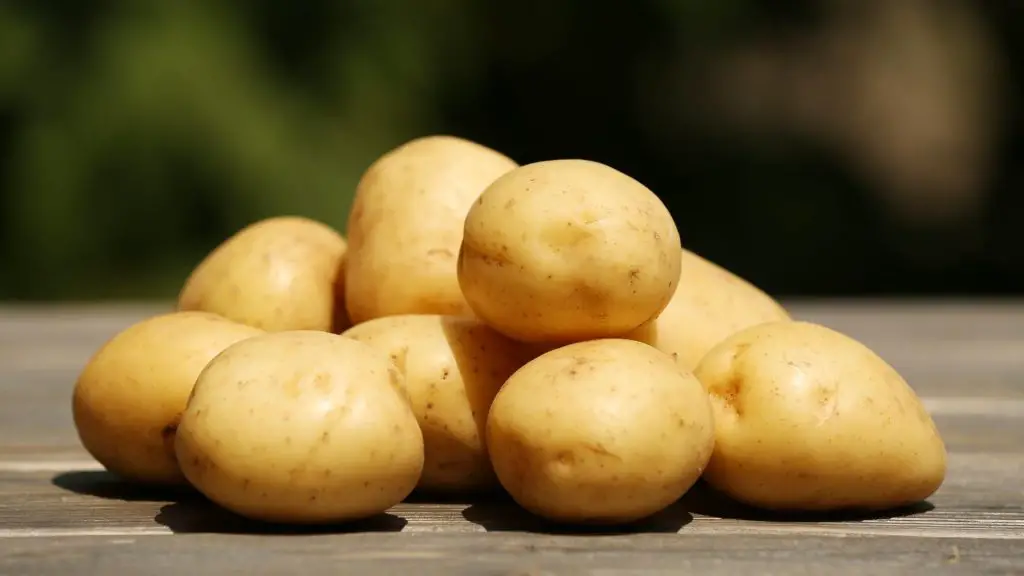
- Urinary complications – Since the potato has calcium, it is expected that this will cause urinary problems. Excess calcium in guinea pigs causes bladder and kidney stones, blood in urine, and pain during urination and urinary infections. If untreated, this can be fatal for the guinea pig.
- Digestion problems – The digestion of the guinea pig might be changed for the worse. The potato contains sugars, starches, and fibers. All of these, in excess, will upset the stomach and cause loose stool and gasses. The guinea pigs are not good at digesting sugars or carbs, and potato has plenty of these nutrients.
- Weight changes – The weight of the guinea pig could be affected by eating a potato. This veggie has lots of carbs, also some fibers, starches, as well as a moderate amount of calories. All of this together will surely change the weight rapidly. So apart from toxicity, there is a risk of weight gain too.
More Information About Potato and Guinea Pigs
Can Guinea Pigs Eat Potato Skin?
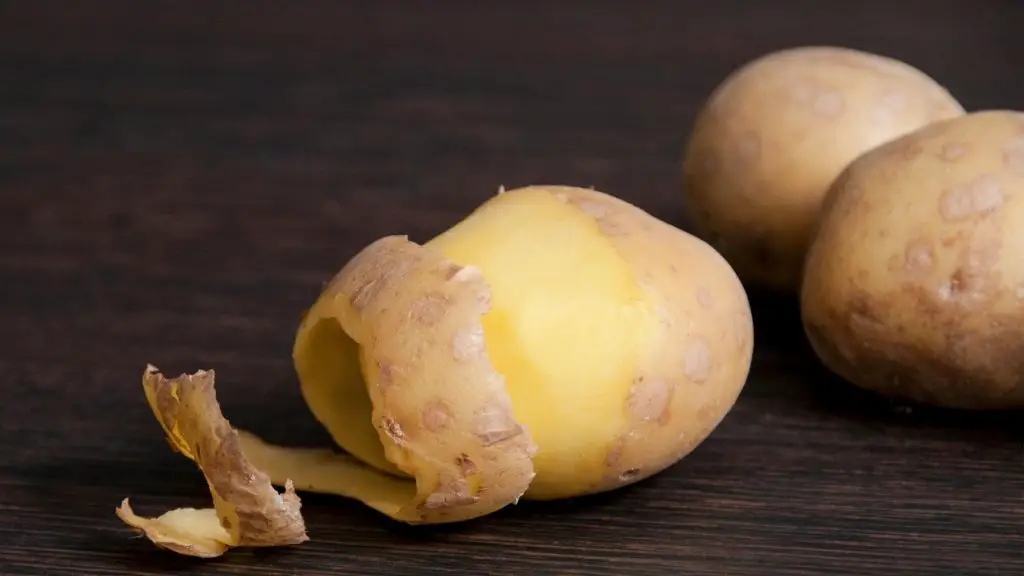
The skin of a potato has various nutrients and benefits, including vitamin C, fiber, and potassium. The abundance of starch in the skin, however, negates these nutrients and advantages.
Guinea pigs’ health is harmed by starch, a carbohydrate. So, its skin is unsuitable for them. As a result, you should not feed your guinea pig potato skin. Guinea pigs must only be fed a fiber-rich diet consisting of grasses and herbs.
Can Guinea Pigs Eat Potato Leaves?
Potato leaves are toxic to guinea pigs. The nightshade family includes potatoes, which contain the toxin solanine. As a result, its leaves, as well as any other nightshade-related leafy, cannot be fed to guinea pigs. Guinea pigs are poisoned by everything connected to potatoes, whether it’s the leaf or the flowers.
Can Guinea Pigs Eat Cooked Potato?
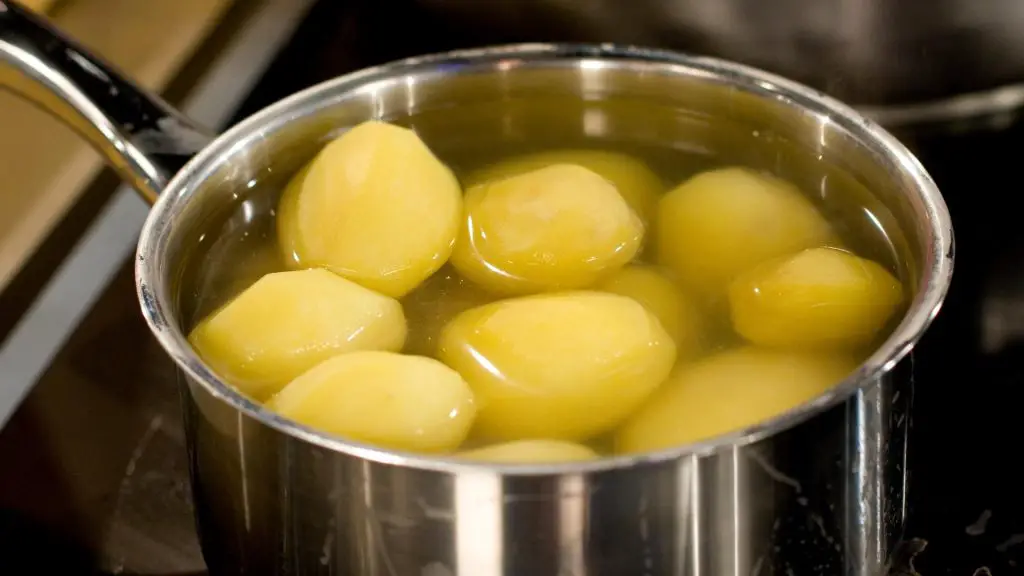
Even if the potatoes have only been cooked, they are not safe for guinea pigs. Cooked potatoes still contain too many carbs for guinea pigs, despite the fact that boiling may neutralize certain poisons.
Cooked food is not recommended for guinea pigs since they cannot digest it. The chemicals used in cooking may be poisonous and cause serious digestive problems.
Can Guinea Pigs Have Sweet Potatoes?
Sweet potatoes are in the Convolvulaceae family, while regular potatoes are in the Nightshade family. Guinea pigs can eat sweet potatoes. But, because sweet potatoes has high sugar, fat, and oxalic acid content, they should be consumed in moderation. To avoid your guinea pig from acquiring a dangerous chronic ailment, serve them once or twice a month.
Quick Facts on Potatoes
These are some of the most interesting facts about potatoes:
- 80% of the potato is water content!
- Potatoes flew up in space! Back in 1995, the potato plants were taken into space with the Columbia shuttle, marking the record of the first time food was grown into space.
- There is a National Potato Day on two dates, August 19th, and October 27th
- The largest potato in the world weighed 18 pounds and 4 oz. It is in the World Records Guinness Book.
- The French Fries were served in the USA for the first time at a presidential dinner, to the president Thomas Jefferson
- The potato originates from Southern Peru. It was first cultivated between 3000 and 2000 BC.
- The potato was introduced to Europe in 1536, originally from Spain, by Gonzalo Jimenez de Quesada. But, Europeans weren’t too happy about the potatoes because this veggie was not mentioned in the Bible and it was thought it brings many diseases too.
- China produces the most potatoes worldwide.
- The potato is also used in alcohol brewing. For example: vodka, akvavit, and potcheen.
- The potato chips are an invention by mistake! Chef George Crum sliced potatoes in thin pieces and fried them with oil and salt. This happened in 1853 when a customer refused thick potatoes, so Crum had to think about how to use the potato differently.
We have also made a full list of foods that guinea pigs can and can’t eat (150+ Types of Foods). Be sure to also check our recommended products page for everything you will ever need to assure a happy life for your guinea pigs. Hope this information was helpful and you have found the answer you were looking for.
List of Sources
Metabolic Availability of Vitamin C in the Guinea-pig
Neurogenic Inflammation of Guinea-Pig Bladder
Caring for Your Pet Guinea Pig
Dietary Requirements of the Guinea Pig With Reference to the Need for a Special Factor
Nutrient Requirements of Laboratory Animals: Fourth Revised Edition

